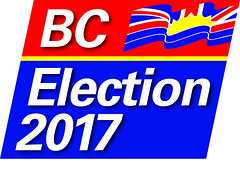Ninth in a series of Black Press B.C. election coverage leading up to May 9
 Regardless of where your vote goes, chances are riding the ferry is going to change under the next B.C. government.
Regardless of where your vote goes, chances are riding the ferry is going to change under the next B.C. government.
The two front-runners are making promises aimed at cutting fares for some ferry users.
The B.C. Liberal Party swung first on the ferries front this campaign, announcing a tax break for frequent sailors as part of their “Vancouver Island platform” announced on the eve of the campaign.
The B.C. NDP Party swung back harder later in the week, promising a rates freeze and then sweetening the pot by adding free rides for seniors during slower weekday runs.
No such “bearing gifts” strategy from the B.C. Green Party, however, unless you were hoping for a wholesale change in the way the ferries operate.
Andrew Weaver and the Greens aren’t promising tweaks to user fees.
Instead, it wants to repatriate BC Ferries as a Crown corporation, where it will be repurposed as part of the party’s overall pledge to use public resources to “support the maximization of the health and well-being of British Columbians.”
Green candidate Adam Olsen (Saanich North and the Islands) has talked about utilizing ferries in the way that best benefits communities, rather than the ferry corporation’s bottom line. Fare hikes and service reductions, he said, are the wrong path.
“[B.C. communities] want government to fund and manage the ferries system as an extension of the highway network and request government to work cooperatively to find solutions that are beneficial for coastal communities and the provincial economy,” he said in statement on the party website.
The idea of BC Ferries as part of the highway system also plays a big role in the rationale of the NDP.
Their plan includes a proposal to roll back fares on smaller routes by 15 per cent, freeze major route fares, and provide a 100 per cent seniors’ weekday discount.
READ: Free weekday ferry travel for B.C. seniors, Horgan says
“This is an essential first step in making BC Ferries affordable and accountable to Island residents. I am determined to ensure the ferries once again become an integral part of our highways system,” North Island NDP candidate and ferries critic Claire Trevena said.
“It impacts in so many different ways, whether it is the small tourist operator or bigger businesses. The cost of ferries is having a huge negative impact on our economy and it is not just our islands – the cost of ferries is having an impact across the province,” she told theecoreport.com.
“Any economist will show you that if you decrease fares, more people will use the system.”
That may be the case — as recent BC Ferries experiments in discount pricing seem to have indicated — but the question being posed by the BC Liberals is how much cost needs to be borne by the rest of the province in order to serve the ferry user.
Liberal Mike DeJong, B.C.’s most recent finance minister, said the NDP platform would lead to deficits, tax increases, and a dropping provincial credit rating.
That said, the party says it understands that for some Islanders, ferries are a necessity.
Their compromise is a tax break of 25 percent of what individual British Columbians pay in ferry fares annually, up to $1,000, for a $250 saving.
This will be put in place as an interim measure as they develop a loyalty program to reduce the cost of ferry travel for frequent users.
“We know living on an Island can be really expensive, so [we are] investing in a B.C. Ferries plan which is going to be a little cheaper for people,” Liberal leader Christy Clark said recently during a campaign stop in Nanaimo.
As an added bonus the party also pledges to invest $1 million into improving BC Ferries WiFi.
Overall vehicle and passenger numbers are up in the first three months of 2017, continuing a recent trend, but bucking the general trend for the previous decade.
A 2014 report for the Union of BC Municipalities concluded fare increases had resulted in a $2.3 billion reduction in British Columbia’s GDP over a ten-year period.

